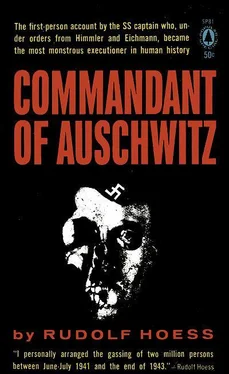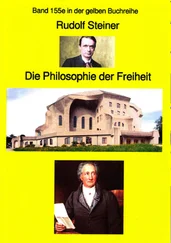At the beginning of 1917 our formation was transferred to the Palestine front. We were in the Holy Land. The old, familiar names from religious history and the stories of the saints were all about us. And how utterly different it all was from the pictures and stories that had filled my youthful dreams!
At first we took up positions on the Hejaz road, but later we moved to the Jerusalem front.
Thus one morning, as we were returning from a lengthy patrol on the far side of the Jordan, we met a column of farm carts in the valley, filled with moss. As the British were using every imaginable means of supplying arms to the Arabs and the mixed races of Palestine, all only too anxious to shake off the Turkish yoke, we had orders to search all farm carts and beasts of burden. We therefore told these peasants to unload their carts, and interrogated them with the help of our interpreter, a young Indian.
When we asked them where they were taking their moss, they explained that it was destined for the monasteries of Jerusalem, where it would be sold to the pilgrims. We were somewhat mystified by this explanation. A little later I was wounded and sent to a hospital in Wilhelma, a German settlement between Jerusalem and Jaffa. The colonists in this place had emigrated from Württemberg for religious reasons some generations before. While I was in the hospital, they told me that a very profitable trade was carried out in the moss that the peasants brought to Jerusalem in their carts. It was a kind of Icelandic moss with grayish-white streaks and red spots. It was described to the pilgrims as having come from Golgotha, the red spots being the blood of Jesus, and it was sold to them at a high price. The colonists explained quite frankly that in peacetime, when thousands visited the holy places, the sale of this moss was an extremely lucrative business. The pilgrims would buy anything that was in any way connected with the saints or the shrines. The large pilgrim monasteries were the greatest offenders. There every effort was made to extract the maximum amount of money from the pilgrims..After my discharge from the hospital, I had a chance of seeing with my own eyes some of these activities in Jerusalem. Owing to the war, there were only a few pilgrims, but this shortage was made good by the presence of German and Austrian soldiers. Later on I came across the same business in Nazareth. I discussed this matter with many of my comrades, because I was disgusted by the cynical manner in which this trade in allegedly holy relics was carried on by the representatives of the many churches established there.
Most of my friends were indifferent, and said that if people were so silly as to be taken in by these swindlers they must expect to pay for their stupidity. Others looked on the whole thing as a kind of tourist trade, such as always flourishes in places that have a special interest. But a few of them who, like me, were devout Catholics, condemned this traffic carried on by the churches, and were sickened by the way they cashed in on the deep, religious feelings of the pilgrims, many of whom had sold all they possessed in order to visit the holy places just once in their lives.
For a long time I failed to sort out my feelings in this matter, but nevertheless they probably played a decisive part in my subsequent renunciation of my faith. I should, however, mention in this connection that my comrades were all convinced Catholics, from the strongly Catholic Black Forest district. Never during this period did I hear a word spoken against the Church.
At this time I also experienced my first love affair. When in the hospital at Wilhelma, I was looked after by a young German nurse. I had been shot through the knee, and at the same time I came down with a severe and protracted bout of malaria. I therefore had to be given particular care and attention lest I harm myself during a feverish delirium. Not even my mother could have looked after me better than did this nurse. Gradually I became aware that it was not mother love alone that made her bestow such loving attention on me. Until then I had never known love for a member of the opposite sex. I had of course heard a great deal of talk about sexual matters among my comrades, and soldiers do not mince their words on this subject. But, perhaps through lack of opportunity, I had had no personal experiences. In addition the hardships of that particular theater of war were not exactly conducive to love-making.
At first I was distressed by her tender caresses and by the way in which she would hold me up and support me longer than was strictly necessary. For, ever since my earliest childhood, I had shunned all demonstration of affection. But at last I too fell under the magic spell of love, and began to regard the woman with new eyes. This love affair, which developed under her guidance stage by stage until its final consummation, was for me a wonderful and undreamed-of experience. I would never have been able on my own to summon enough courage to bring it about. In all its tenderness and charm it was to affect me throughout all the rest of my life. I could never again speak flippantly of such matters; sexual intercourse without real affection became unthinkable for me. Thus I was saved from casual flirtations and brothels.
The war came to an end. The upshot of my army service was that I had reached manhood, both physically and mentally, long before my years. My wartime experiences had left their mark on me, a mark that would never be erased. I had broken away from the narrow safety of my parents’ home. My attitude to life was wider. I had seen and experienced a great deal during the two and a half years that I had spent in foreign lands. I had got to know all sorts and conditions of men, and had observed their needs and weaknesses.
The frightened schoolboy who had escaped from his mother’s care and fought his first action against the enemy had become a tough and hardened soldier. I became a noncommissioned officer at the age of seventeen, the youngest in the army, and was decorated with the Iron Cross, First Class. After my promotion I was engaged almost entirely on long-range reconnaissance and sabotage behind the enemy lines. Meanwhile I had learned that the ability to lead men depends not on rank, but on skill, and that in difficult situations it is icy calm and unshakable imperturbability that are decisive in a commanding officer. But I had also learned how hard it is always to be an example to others and to keep up an appearance that does not betray one’s real feelings.
The armistice found us in Damascus. I was determined at all costs not to be interned, and decided on my own initiative to fight my way home. The Corps had warned us against this. After a discussion, all the men of my troop volunteered to come with me. Since the spring of 1918 I had commanded an independent cavalry troop of which all the men were in their thirties, while I was just eighteen.
We had an adventurous journey through Anatolia, safled across the Black Sea to Varna in a miserable coaster, traveled on through Bulgaria and Romania and made our way, in deep snow, through the Transylvanian Alps to Hungary and Austria. We eventually reached home after almost three months of traveling. We had no maps to help us and had to rely on a school atlas. We were always short of food both for ourselves and our horses and we had to force our way through a Romania which had now become hostile again. Our arrival at the regimental depot was completely unexpected. So far as I know no other complete unit from our theater of war succeeded in reaching home.
During the war I had repeated doubts concerning my suitability for the priesthood. The affair of my confession and the trade in sacred relics that I had seen in the Holy Land had destroyed my faith in priests. I also had doubts concerning various established customs of the Church. Gradually I became of the opinion that I must refuse to follow the profession that my father had vowed should be mine. I discussed this with no one. In the last letter that she wrote before her death, my mother had told me never to forget the future that my father had foreseen for me! The respect that I had for my parents’ wishes, and my rejection of the profession they had chosen for me, threw my mind into a turmoil, and I was still unable to see matters clearly when at last I arrived home.
Читать дальше












